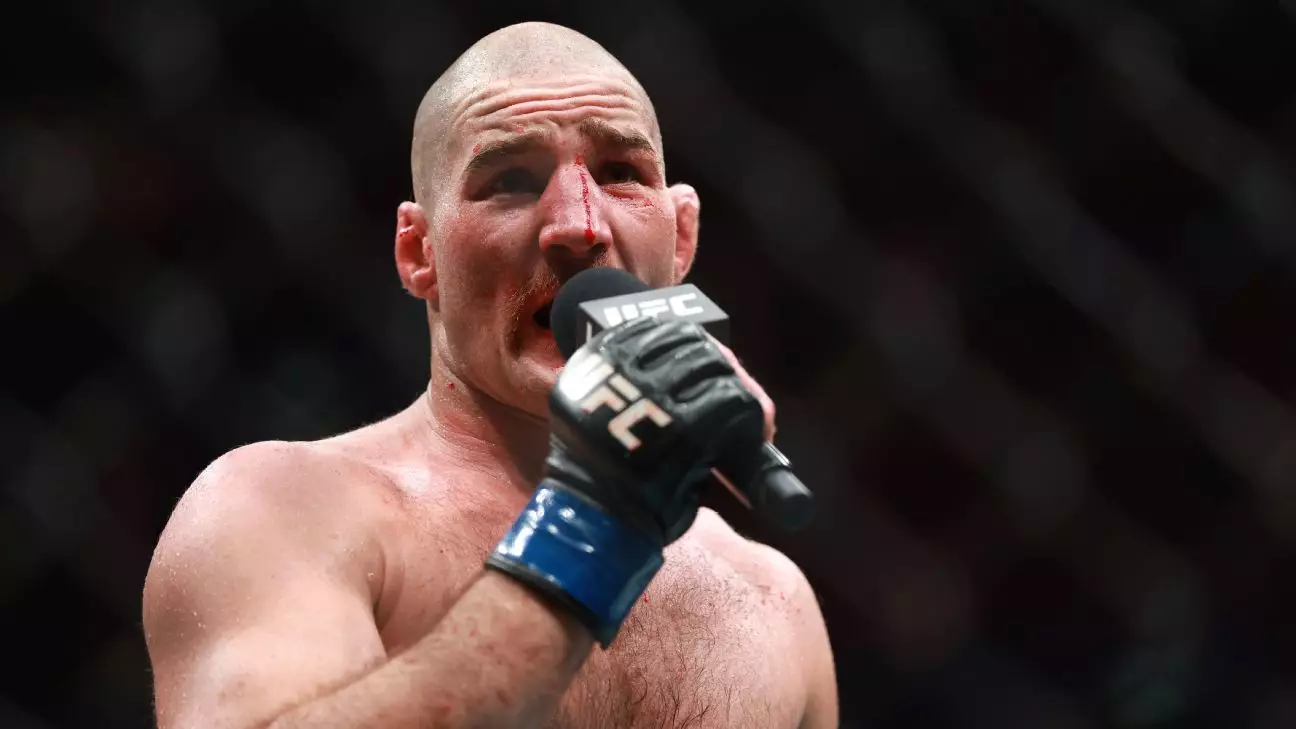In the world of mixed martial arts, the bond between a fighter and their coach is often considered sacred. However, the dynamics of this relationship can shift dramatically in the aftermath of a fight, especially when performance is taken into public scrutiny. This was starkly illustrated following Sean Strickland’s disappointing title rematch against Dricus Du Plessis at UFC 312. Strickland’s defeat, which garnered a unanimous decision score of 50-45, 50-45, and 49-46, sent ripples through both his personal and professional life, particularly following critical remarks made by his longtime coach, Eric Nicksick.
The gulf between Strickland’s expectations for himself and Nicksick’s public assessment has introduced a layer of tension that now dictates Strickland’s trajectory in the sport. In an emotional response shared through social media, Strickland revealed that his relationship with Nicksick has soured significantly as a result of this fallout, hinting that Nicksick “will probably not” be part of his future corner team. This broken bond raises essential questions regarding loyalty, accountability, and the mental health aspects of being an elite athlete.
Strickland’s revelations following the fight provide a glimpse into a mindset often overlooked by fans and analysts. He candidly shared details about a tumultuous fight camp that saw him grappling not only with physical injuries—such as a broken arm suffered during training and a staph infection—but also with psychological hurdles. The added pressure of public expectations and scrutiny can be debilitating, and it is evident that Strickland was carrying more than just weight in the Octagon.
Despite these challenges, he insists that he pushed through, underscoring the essence of resilience in his character as an athlete. However, the fallout from Nicksick’s comments regarding Strickland’s performance—labeling it “underwhelming” and suggesting that he appeared “sleepwalking”—adds another layer of complexity to this narrative. Strickland’s retort emphasizes a relentless drive to showcase his commitment to the sport, reinforcing the idea that while he may falter in technical aspects, his heart remains in the fight.
Strickland’s admission that he may part ways with Nicksick speaks volumes about the nature of mentorship in high-stakes environments. Coaching is not merely technical guidance; it encompasses emotional support, mutual respect, and trust. Strickland’s declaration hints at a deeper necessity for a coach who aligns not only with his physical training needs but also with his motivational drivers.
The fallout has made it clear that fighters, regardless of their skill levels and past successes, are not insulated from the potential fallout of poor performances. Moving forward, Strickland is determined to find a coach that can inspire him, someone who can instill confidence rather than doubt at critical junctures. This situation serves as a reminder of the challenging aspects of maintaining relationships in an environment that thrives on competition and results.
As Strickland processes this critical juncture in his career, fans and pundits alike are left to ponder his future trajectory within the UFC. Strickland has an impressive record of 29 wins and 7 losses, with a track record indicating that he is capable of great performances when he is able to align his mental fortitude, physical readiness, and coaching support.
Strickland is at a crossroads; he must decide how best to channel this experience into future engagements inside the Octagon. The determination not to quit, highlighted in his account of breaking his nose during the fight, unveils an indomitable spirit that must be harnessed going forward. As he charts his path ahead, the relationship turmoil could either become a stepping stone for further growth or an obstacle that halts his progress.
What remains critical for Sean Strickland now is to identify not only what he wants from the sport but also who he surrounds himself with in pursuit of that goal. The evolution of Strickland’s identity as both a fighter and an individual will undoubtedly provide meaningful insight into the complexities of the competitive sports landscape in contemporary MMA.

